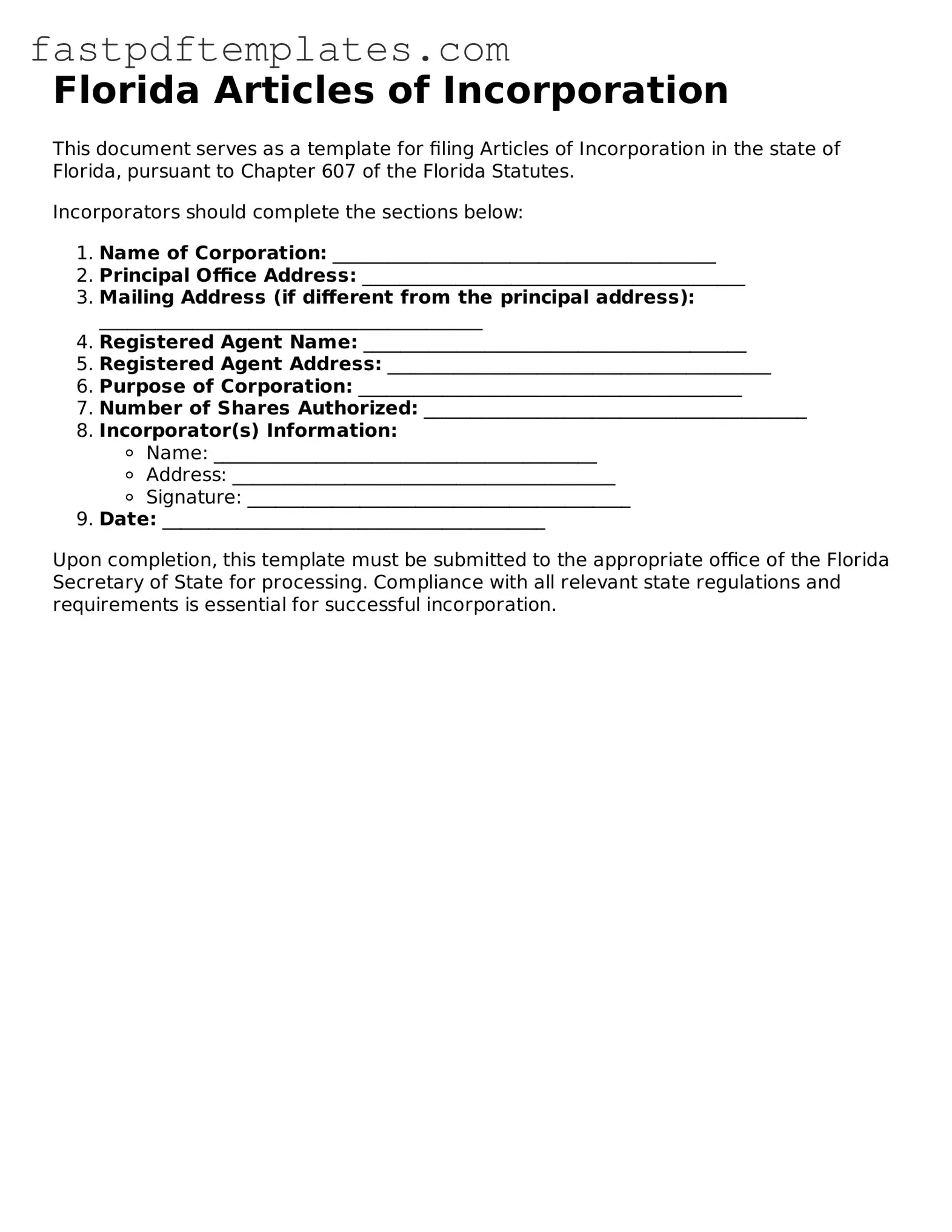The Florida Articles of Incorporation form is similar to the Certificate of Incorporation, which is used in other states. Both documents serve the purpose of officially establishing a corporation. They include essential information such as the corporation's name, purpose, and the names of the initial directors. The Certificate of Incorporation may have slightly different requirements depending on the state, but the core function remains the same: to create a legal entity recognized by the state.
Another document similar to the Florida Articles of Incorporation is the Bylaws. While the Articles establish the corporation, the Bylaws outline how the corporation will be governed. They include rules about meetings, voting procedures, and the responsibilities of officers and directors. Both documents are essential for the functioning of a corporation, but they serve different roles in its structure.
The Limited Liability Company (LLC) Articles of Organization is also comparable to the Articles of Incorporation. This document is used to create an LLC, which is a different type of business structure. Like the Articles of Incorporation, the Articles of Organization require basic information about the business, such as its name and address. Both documents provide legal recognition to the business entity, but they cater to different types of organizations.
The Partnership Agreement is another document that shares similarities with the Articles of Incorporation. This agreement is used to outline the terms of a partnership between individuals or entities. It includes details about each partner's contributions, responsibilities, and profit-sharing arrangements. While the Articles of Incorporation focus on corporations, both documents establish the framework for how the business will operate.
The Statement of Information is also akin to the Florida Articles of Incorporation. This document is typically required after incorporation and provides updated information about the corporation, such as its address and the names of its officers. While the Articles of Incorporation are filed at the time of formation, the Statement of Information is often filed periodically to keep the state informed about the corporation's status.
Finally, the Certificate of Good Standing can be compared to the Articles of Incorporation. This certificate verifies that a corporation has been properly formed and is compliant with state regulations. While the Articles of Incorporation initiate the creation of the corporation, the Certificate of Good Standing confirms that it is still in good standing with the state. Both documents are important for maintaining a corporation's legal status.

